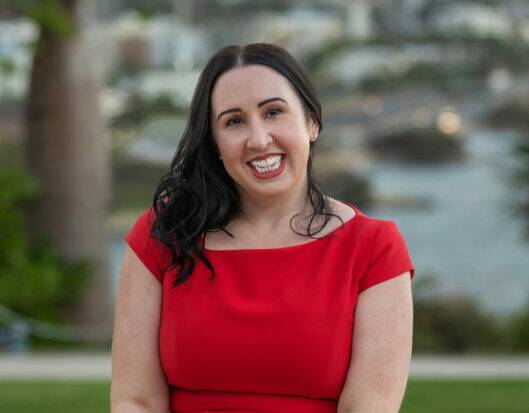
Mandy Downing, a proud Yindjibarndi woman who grew up in Mandurah, has been appointed as Curtin University's first Dean of Indigenous Futures.
Create a free account to read this article
$0/
(min cost $0)
or signup to continue reading
With a background of many years in education, employment and training, Dean Downing said she was looking forward to growing and developing in the role.
She said she would be "mapping all of the things the University was doing to understand where strengths and weaknesses lie within the Indigenous futures space".
Dean Downing started her career in social work at Centrecare, and said she had always been passionate about access to education and opportunities for Indigenous people.
"There was a lot of training delivered in my first job - it was a really lovely space to engage with the community," she said.
"It was fulfilling to be able to work with others and bring different perspectives and skills to improve each individual's circumstances through education, employment and training opportunities."
Later in her career, Dean Downing was working as a music teacher at a school and decided to work at Curtin University on a temporary contract to fill her time during school holidays.
"I was working in the research ethics office and I really enjoyed it - but could only do certain hours to suit my teaching schedule. Over time I realised how much I enjoyed working in the research environment at Uni."
Dean Downing decided to stay on at the University, and before she knew it - she became the manager of research ethics.
While balancing a full time working schedule, she decided to undertake research and completed a Bachelor of Applied Science (Indigenous Australian Research) and Honours degree.
"I was enjoying the research environment but found there were these discrepancies within higher education policy and guidelines which positioned Aboriginal people as though they would never be the researchers but the researched," Dean Downing said.
"I started looking at different structures within Uni environments and institutional barriers to Aboriginal researchers for my Honours - and that gave me even more research material because there seems to be a lot."
Dean Downing said while working through and unpacking these barriers, she was appointed as the research development advisor at the University, where she collaborated with passionate academics.
"I really enjoyed that environment - it's just lovely, with amazing people who are so supportive of a different way of thinking than you might see out in industry," she said.
"It's a privilege to be part of a team who really values Indigenous perspectives and knowledge."
Lots of people have said before 'you can't be what you can't see', it's really important to have Indigenous people taking these roles and stepping into leadership positions not just in education but many areas.
- Mandy Downing
Dean Downing said that growing up in Mandurah, surrounded by family, and attending primary school and high school in the area provided unique opportunities.
"I had the opportunity to have swimming lessons where you would just walk over a sand dune and immediately be on country at the beach.
"I was very lucky to have my brother at school and some cousins - I had a lot of support family wise."
The way education had changed in the past thirty years had also become clear to Dean Downing as she reflected on the past.
"I have vivid memories of being assigned a project to write about a famous explorer, and my cousin in the same class was assigned James Stirling," she said.
"You can imagine going home to talk to your Indigenous parents about that.
"As I reflect on my education back then it is pivotal when looking at what we're doing now. Around the CBD area we can see Noongar language taught in the curriculum. It's quite different to what we went through - things have progressed but there is still a lot of work to do."
Dean Downing started in her new role as Dean of Indigenous Futures in April, a role described as being "responsible for ensuring Australia's Indigenous futures across the nation's culture and economy are supported and considered in the learning, research and partnership activities of the faculty".
She also became the first female co-chair elected for the Australian Institute of Aboriginal and Torres Strait Islander Studies National Research Ethics Committee in early 2022.
"Lots of people have said before 'you can't be what you can't see', it's really important to have our people taking these roles and stepping into leadership positions not just in education but many areas."


